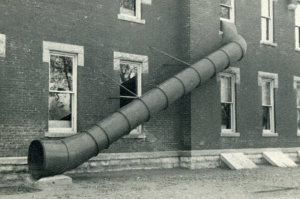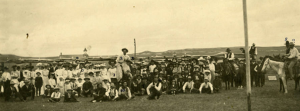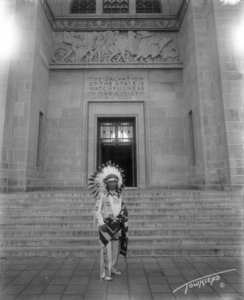Search the Blog
Categories
- Books & Reading
- Broadband Buzz
- Census
- Education & Training
- Friday Reads
- General
- Grants
- Information Resources
- Library Management
- Nebraska Center for the Book
- Nebraska Libraries on the Web
- Nebraska Memories
- Now hiring @ your library
- Preservation
- Pretty Sweet Tech
- Programming
- Public Library Boards of Trustees
- Public Relations
- Talking Book & Braille Service (TBBS)
- Technology
- Uncategorized
- What's Up Doc / Govdocs
- Youth Services
Archives
Subscribe
Category Archives: Uncategorized
Throwback Thursday: Fire Escape
Check out what we found on the Nebraska Memories archive!
This week’s #ThrowbackThursday features a 4-1/2″ x 3″ black and white photograph of Havelock Central Elementary School during the 1950’s. Pictured is a large tubular structure attached to the building that was used as a fire escape.
This picture is provided and owned by Lincoln Public Schools. Historical materials related to the Lincoln Public Schools have been collected and saved in some form and in various offices, library sites and schools since the inception of the first school in the county. Over the past 15 years, the Library Media Services Department has made a deliberate attempt to collect, preserve and archive the history of LPS and make various items available to the staff and also the public. This collection of school building photographs is the beginning of what hopes to be a growing and evolving digital collection.
Nebraska Memories is a cooperative project to digitize Nebraska-related historical and cultural heritage materials and make them available to researchers of all ages via the Internet. The Nebraska Memories archive is brought to you by the Nebraska Library Commission. If your institution is interested in participating in Nebraska Memories, see http://nlc.nebraska.gov/nebraskamemories/participation.aspx for more information.
Throwback Thursday: Fourth of July on Adams Ranch
Happy 4th of July! Let’s celebrate with a #ThrowbackThursday!
This 9-1/2″ x 3-3/4″ panoramic black and white photo shows a large group of men, women and children gathered together at Adams Ranch in Brownson to celebrate the 4th of July in 1904.
This photo is part of the Cheyenne County Historical Society and Museum collection on the Nebraska Memories archive. Cheyenne County Historical Society and Museum, located in Sidney, worked with the Nebraska Library Commission to digitize items from their collection of historical photographs representing people and places of Sidney, Fort Sidney, Potter, Dalton and other communities and sites in the county. Images in this collection include photographs showing business districts in the heart of these towns, troops stationed at the fort, and William Jennings Bryan speaking at Cheyenne County Court House.
Interested in Nebraska History? Explore this collection and many more on the Nebraska Memories archive.
Nebraska Memories is a cooperative project to digitize Nebraska-related historical and cultural heritage materials and make them available to researchers of all ages via the Internet. The Nebraska Memories archive is brought to you by the Nebraska Library Commission. If your institution is interested in participating in Nebraska Memories, see http://nlc.nebraska.gov/nebraskamemories/participation.aspx for more information.
July 4th Fun Facts–Celebrating 243 Years of Independence!
 As the nation celebrates this Independence Day, it’s a good time to reflect on how our Founding Fathers enshrined in our Constitution the importance of statistics as a vital tool for measuring people, places and economy.
As the nation celebrates this Independence Day, it’s a good time to reflect on how our Founding Fathers enshrined in our Constitution the importance of statistics as a vital tool for measuring people, places and economy.
Who was the first signer of the Declaration of Independence?
Is there a U.S. county named Independence?
What was the nation’s population in 1776?
Answers:
- John Hancock, a merchant by trade, was the first to sign the Declaration of Independence.
- The only county named Independence is in Arkansas.
- The U.S. population was 2.5 million in 1776. It is more than 130 times larger today at 330 million
The following statistics — historical and whimsical — come from responses to U.S. Census Bureau surveys:
- In July 1776, an estimated 2.5 million people lived in the 13 colonies (Series B 12 table below). According to recent projections, there are 330 million residents as of July 1, 2019 (Projections for the United States: 2017-2060, Table 1 below).
- The oldest signer, at age 70, was Benjamin Franklin of Pennsylvania. Franklin County, Pa., had an estimated population of 154,835 on July 1, 2018. There are 24 counties named Franklin in the United States.
- The youngest signer, at age 26, was Edward Rutledge of South Carolina. There are no counties named Rutledge.
- Speaking of county names, there are four counties named Liberty (Florida, Georgia, Montana, Texas) and 18 counties and one parish named Union.
- $368.6 million worth of fireworks were sold in 2012 through establishments classified as NAICS 453998 and all other miscellaneous retailers (except tobacco stores).
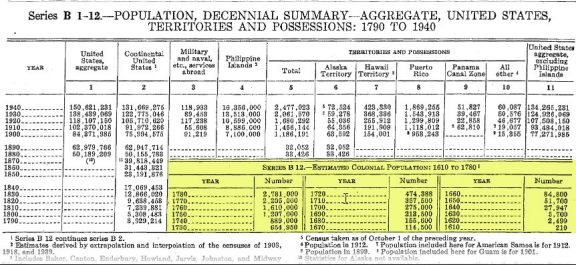
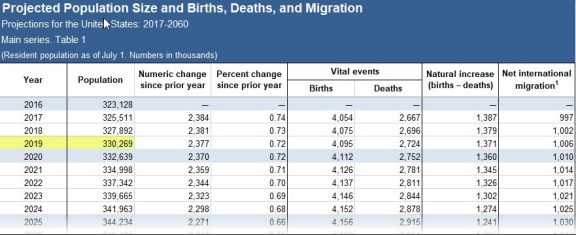
More Fun Facts 
The Census Bureau’s Statistics in Schools program has created this Fun Facts & Teaching Guide for the Fourth of July.
Teachers can interact with students by using fun but real-life data related to the holiday. The teaching guide offers ideas on how to use these facts as an activity.
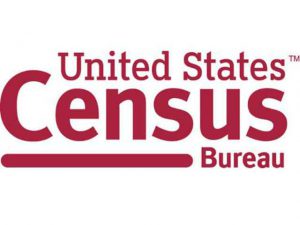
Throwback Thursday: Prince Wilhelm of Sweden
We’ve got a royal #ThrowbackThursday for you!
This black and white photo was taken on May 12, 1927. It shows Prince Wilhelm of Sweden (front left) during his visit to the Immanuel Deaconess Institute. Those pictured with him are other Swedish dignitaries, people connected with the institute, and detectives.
This photo is part of the Alegent Health Immanuel Medical Center collection on the Nebraska Memories archive. The rich and well documented history of Immanuel Medical Center in Omaha, Nebraska is shown in these images of the early buildings, people and artifacts.
Interested in Nebraska history? Check out this collection and more on the Nebraska Memories archive!
Nebraska Memories is a cooperative project to digitize Nebraska-related historical and cultural heritage materials and make them available to researchers of all ages via the Internet. The Nebraska Memories archive is brought to you by the Nebraska Library Commission. If your institution is interested in participating in Nebraska Memories, see http://nlc.nebraska.gov/nebraskamemories/participation.aspx for more information.
Census Bureau Announces 2019 Census Test to Begin
 The U.S. Census Bureau has announced that the 2019 Census Test has begun, as approximately 480,000 housing units across the country receive a questionnaire testing the operational effects of including a citizenship question on the 2020 Census. The 2019 Census Test will randomly assign households to two panels and ask them to respond to the 2020 Census questions. Panel A will include the question on citizenship, Panel B will not. Findings from the nationwide test will assist in determining updates to 2020 Census operations, such as how many census takers are needed to follow up with nonresponding households and how to better communicate with households about the 2020 Census.
The U.S. Census Bureau has announced that the 2019 Census Test has begun, as approximately 480,000 housing units across the country receive a questionnaire testing the operational effects of including a citizenship question on the 2020 Census. The 2019 Census Test will randomly assign households to two panels and ask them to respond to the 2020 Census questions. Panel A will include the question on citizenship, Panel B will not. Findings from the nationwide test will assist in determining updates to 2020 Census operations, such as how many census takers are needed to follow up with nonresponding households and how to better communicate with households about the 2020 Census.
Posted in Census, Education & Training, General, Information Resources, Technology, Uncategorized, What's Up Doc / Govdocs
Tagged census
Leave a comment
Throwback Thursday: Lincoln Statue
Happy #ThrowbackThursday from Nebraska Memories!
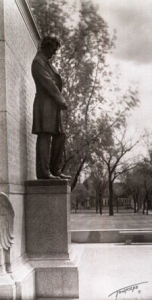 This week, we have an 8″x10″ glass plate negative of the bronze statue that sits outside of the Nebraska State Capitol building. Shown in profile, this statue of Abraham Lincoln stands on a granite pedestal and behind it, carved into the granite wall, is the Gettysburg Address.
This week, we have an 8″x10″ glass plate negative of the bronze statue that sits outside of the Nebraska State Capitol building. Shown in profile, this statue of Abraham Lincoln stands on a granite pedestal and behind it, carved into the granite wall, is the Gettysburg Address.
This statue was dedicated in a ceremony on September 12, 1912 and predates the current capitol building. The statue is located on the west side of the building.
This photo is part of the Townsend Studio collection on the Nebraska Memories archive. The studio holds a collection of glass plate and acetate negatives of early Lincoln and early residents.
Interested in Nebraska history? Find out more about this photo in the Nebraska Memories archive!
Nebraska Memories is a cooperative project to digitize Nebraska-related historical and cultural heritage materials and make them available to researchers of all ages via the Internet. The Nebraska Memories archive is brought to you by the Nebraska Library Commission. If your institution is interested in participating in Nebraska Memories, see http://nlc.nebraska.gov/nebraskamemories/participation.aspx for more information.
Throwback Thursday: Chief James Red Cloud
Happy #ThrowbackThursday from Nebraska Memories!
This 8″x10″ glass plate negative is from 1934. It features Chief Red Cloud’s grandson James as he stands on steps of Nebraska’s State Capitol. He is pictured wearing beaded clothing and a full feather headdress.
This picture is part of the Townsend Studio collection. Check out materials in this collection and many more on the Nebraska Memories archive!
Nebraska Memories is a cooperative project to digitize Nebraska-related historical and cultural heritage materials and make them available to researchers of all ages via the Internet. The Nebraska Memories archive is brought to you by the Nebraska Library Commission. If your institution is interested in participating in Nebraska Memories, see http://nlc.nebraska.gov/nebraskamemories/participation.aspx for more information.
Posted in General, Nebraska Memories, Uncategorized
Tagged #TBT, #ThrowbackThursday, Nebraska, Nebraska Memories, Throwback Thursday, Townsend Studio
Leave a comment
The Public Library’s Role during Elections: Voter Education in the Age of Misinformation
 In a time marked by uncertainty, the public library is in an extraordinary position as one of society’s most trusted institutions. Public libraries can leverage that trust to be at the forefront of voter education as we head into what will be one of the most watched presidential elections of our lifetimes.
In a time marked by uncertainty, the public library is in an extraordinary position as one of society’s most trusted institutions. Public libraries can leverage that trust to be at the forefront of voter education as we head into what will be one of the most watched presidential elections of our lifetimes.
This presentation will equip librarians to gather user-friendly information from reliable and nonpartisan sources, allowing libraries to offer an invaluable, evolving resource tailor-made for their communities. By exploring resources—everything from a glossary of common terms used during elections to campaign finance information—this webinar will help librarians gather the most useful information in addressing their community’s needs. With a focus on citizenship and voting, librarians will learn to serve their diverse populations in a nonthreatening and nonpartisan way. REGISTER NOW
Date: Tuesday, Jun. 4, 2019
Time: 1:00–2:00 p.m. Central Time
Learning Outcomes
At the conclusion of this webinar, participants will be able to:
• Identify the information needs of their communities regarding elections and voter mobilization efforts;
• Identify key stakeholders and audiences to whom they will communicate the importance of their voter education efforts; and
• Curate and design a helpful online resource equipping their communities to be engaged in the voting process.
Presenters:
Haley Samuelson is reference librarian at the Cook Memorial Public Library District serving Lake County, IL. With more than 15 years’ experience in libraries, Haley has worked with patrons of all ages. She also has experience working in at-risk neighborhoods on Chicago’s West Side. Since 2016, she has enjoyed marrying her background in politics with the information needs of her community.
Nate Gass is webmaster and emerging technology librarian at the Cook Memorial Public Library District serving Lake County, IL. In addition to maintaining the library’s website, he has eight years’ experience teaching computer classes and technology topics. Nate also hosts and produces the Cook Memorial Public Library Podcast (https://cooklib.org/podcast) and is a member of the library’s social media team.
Registration Details
Date: Tuesday, Jun. 4, 2019
Time: 1:00–2:00 p.m. Central Time
Cost: The webinar is free, but registration is required. You can register for this webinar until it begins, or until space is no longer available, whichever comes first.
Libraries’ Guide to the 2020 Census
 The American Library Association has released the Libraries’ Guide to the 2020 Census, a new resource to prepare libraries for the decennial count of every person living in the United States.
The American Library Association has released the Libraries’ Guide to the 2020 Census, a new resource to prepare libraries for the decennial count of every person living in the United States.
The Guide contains practical information to assist library staff in addressing potential patron and community requests regarding the upcoming 2020 Census. The Guide includes:
• basic information about the Census process;
• highlights of new components in the 2020 Census, such as the online response option;
• frequently asked questions;
• a timeline of key Census dates;
• contact information and links to additional resources.
ALA teamed with the Georgetown Center on Poverty and Inequality to develop the Guide, with support from ALA’s 2020 Census Library Outreach and Education Task Force. ALA plans to provide additional resources for library practitioners in the months leading up to Census Day on April 1, 2020.
The Libraries’ Guide to the 2020 Census is available for free download at ala.org/census.
NASA MAKES THEIR ENTIRE MEDIA LIBRARY PUBLICLY ACCESSIBLE AND COPYRIGHT FREE
 No matter if you enjoy taking or just watching images of space, NASA has a treat for you. They have made their entire collection of images, sounds, and video available and publicly searchable online. It’s 140,000 photos and other resources available for you to see, or even download and use it any way you like.
No matter if you enjoy taking or just watching images of space, NASA has a treat for you. They have made their entire collection of images, sounds, and video available and publicly searchable online. It’s 140,000 photos and other resources available for you to see, or even download and use it any way you like.
You can type in the term you want to search for and browse through the database of stunning images of outer space. Additionally, there are also images of astronauts, rocket launches, events at NASA and other interesting stuff. What’s also interesting is that almost every image comes with the EXIF data, which could be useful for astrophotography enthusiasts.
When you browse through the gallery, you can choose to see images, videos or audio.  Another cool feature I noticed is that you can narrow down the results by the year. Of course, I used some of my time today to browse through the gallery, and here are some of the space photos you can find:
Another cool feature I noticed is that you can narrow down the results by the year. Of course, I used some of my time today to browse through the gallery, and here are some of the space photos you can find:
 What I love about NASA is that they make interesting content for average Internet users. They make us feel closer and more familiar with their work and with the secrets of the outer space. For instance, they recently launched a GIPHY account full of awesome animated gifs. It’s also great that photography is an important part of their missions, and so it was even before “pics or it didn’t happen” became the rule. The vast media library they have now published is available to everyone, free of charge and free of copyright. Therefore, you can take a peek at the fascinating mysteries of space, check out what it’s like inside NASA’s premises, or download the images to make something awesome from them. Either way, you’ll enjoy it!
What I love about NASA is that they make interesting content for average Internet users. They make us feel closer and more familiar with their work and with the secrets of the outer space. For instance, they recently launched a GIPHY account full of awesome animated gifs. It’s also great that photography is an important part of their missions, and so it was even before “pics or it didn’t happen” became the rule. The vast media library they have now published is available to everyone, free of charge and free of copyright. Therefore, you can take a peek at the fascinating mysteries of space, check out what it’s like inside NASA’s premises, or download the images to make something awesome from them. Either way, you’ll enjoy it!
Courtesy of
THIS WEEK: Training Seminar for Cultural Heritage Professionals
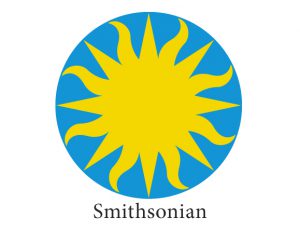 Cultural heritage professionals from across the region are invited for a training workshop for post‐disaster community engagement.
Cultural heritage professionals from across the region are invited for a training workshop for post‐disaster community engagement.
“Strategies for Post-Disaster Community Engagement Workshop”
When homes are damaged and lives are upended, treasured keepsakes such as artwork, photos, personal papers, and other family heirlooms become more cherished. Even in the aftermath of a disaster, these treasures may be salvageable. Cultural institutions can provide important information to communities to preserve their possessions as they regain access to their homes and businesses. On May 31, the Smithsonian Institution’s experts will be onsite and online at The Durham Museum to provide a workshop exclusively for cultural heritage professionals. They will conduct a “train‐the-trainer”
session with the hope that institutions will host workshops in their own communities to most directly help those recovering from the recent historic flooding.
Friday, May 31 from 1:00 p.m. – 3:00 p.m. CST
The Durham Museum
Criss Conference Center,
801 S. 10th Street,
Omaha, NE
The workshop will be live-streamed through ZOOM video-conference software for those unable to attend onsite.
Presented by The Smithsonian Cultural Rescue Initiative, in collaboration with The Durham Museum in Omaha.
Register by emailing Carrie Meyer at cmeyer@durhammuseum.org and indicate ZOOM or onsite participation.
ThrowbackThursday: “Little Gold Star”
NLC remembers those who died in service to our country with this week’s #ThrowbackThursday.
This week we have sheet music of World War I. “Little Gold Star” was written by Will M. Maupin and J. A. Parks, who was an internationally famous Nebraska composer and publisher.
“O little gold star on your field of white!
Your hero has paid the price;
God comfort the hearts that are sad tonight
With the thought of his sacrifice.
O little gold star in your border’d red,
You gleam for a world made free,
For the choice he made, and the price he paid
For the world and its liberty!”
If you’d like to hear a recording of this piece, click here.
This piece is owned and provided by Polley Music Library. Just over two hundred fifty pieces of Nebraska sheet music are available through the Nebraska Memories databases, as well as concert programs, manuscripts, theatre programs, photographs, and other Nebraska memorabilia which features an element of music. Searchers can also listen to a dozen performances of selections from this music collection performed by local musicians.
Interested in Nebraska history? Find out more about this photo in the Nebraska Memories archive!
Nebraska Memories is a cooperative project to digitize Nebraska-related historical and cultural heritage materials and make them available to researchers of all ages via the Internet. The Nebraska Memories archive is brought to you by the Nebraska Library Commission. If your institution is interested in participating in Nebraska Memories, see http://nlc.nebraska.gov/nebraskamemories/participation.aspx for more information.
Posted in General, Nebraska Memories, Uncategorized
Tagged #TBT, #ThrowbackThursday, Memorial Day, Polley Music Library, Throwback Thursday
Leave a comment
Friday Reads: The Book of Tomorrow, A Novel by Cecelia Ahern
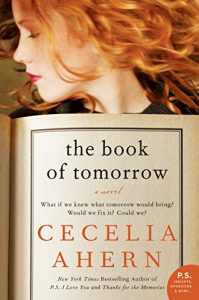 Once again, I have come across a book in the mystery sub-genre of Bibliomystery. In The Book of Tomorrow, Cecilia Ahern’s intriguing narrative proves to be much more captivating than just a whimsical young adult novel.
Once again, I have come across a book in the mystery sub-genre of Bibliomystery. In The Book of Tomorrow, Cecilia Ahern’s intriguing narrative proves to be much more captivating than just a whimsical young adult novel.
At first glance, Tamara Goodwin is nothing more than a poor little rich girl. But in one fell swoop, Tamara loses her father to suicide, her family’s lavish Dublin home to crippling debt and misfortune, her mother to a depression so debilitating that she can’t even get out of bed, and her friends. With dwindling options, Tamara and her mother pack their bags for Meath, a small town in the Irish countryside where Tamara’s distant aunt and uncle reside. Bored and restless, Tamara stumbles upon an old, padlocked diary one day while chatting with the cute boy that runs a lending library out of the back of a van. Shortly thereafter she discovers that the peculiar diary includes entries for one day in the future, seemingly authored in her own handwriting. Each day she finds herself startled by the accuracy of the prophetic diary, eventually learning to use its foresight to help her out of an unsettling situation in Meath, finding herself, and coming to terms with her father’s suicide and dark family secrets.
Cecelia Ahern is also the author of P.S. I Love You, so if you are a fan of that book, as well as a fan of Ahern in general, I’m sure you’ll also enjoy The Book of Tomorrow!
Posted in Books & Reading, General, Information Resources, Uncategorized
Tagged Friday Reads
Leave a comment
Throwback Thursday: Lincoln Fire Department
Check out this week’s #ThrowbackThursday from the Nebraska Memories archive.
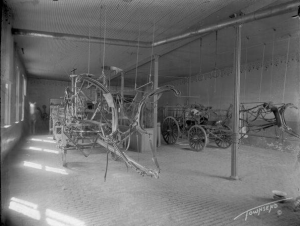 This 8″x10″ glass plate negative shows the interior view of a Lincoln Fire Department around the early 1900s. Harnesses are suspended from the ceiling and hooked up to two wagons in order for the horses to be quickly hitched up.
This 8″x10″ glass plate negative shows the interior view of a Lincoln Fire Department around the early 1900s. Harnesses are suspended from the ceiling and hooked up to two wagons in order for the horses to be quickly hitched up.
This photo is courtesy of Townsend Studio. Townsend studio has been in continuous operation since it was founded in Lincoln, Nebraska, in 1888 by Timothy Townsend with his sons, Alva C. and Charles. The studio holds a collection of glass plate and acetate negatives of early Lincoln and early residents including General John J. Pershing, William Jennings Bryan and Mari Sandoz; images also include University of Nebraska and high school sports teams, state governors and Lincoln Mayors.
Interested in Nebraska history? Find out more about this photo in the Nebraska Memories archive!
Nebraska Memories is a cooperative project to digitize Nebraska-related historical and cultural heritage materials and make them available to researchers of all ages via the Internet. The Nebraska Memories archive is brought to you by the Nebraska Library Commission. If your institution is interested in participating in Nebraska Memories, see http://nlc.nebraska.gov/nebraskamemories/participation.aspx for more information.
FREE PLA Webinar : Measuring the Success of Health Programs and Services
![]() Public libraries are critical to their community’s health, serving as a go-to resource for individuals to access current and reliable health information. Public library staff have a deep understanding of the unique needs of their communities and the value of serving their patrons’ health needs. Now all they need is the data to prove just how valuable those services are. In this webinar, participants will learn how Project Outcome’s new health survey will help public libraries measure the success of health programs and services. Participants will also discover helpful resources and training tools to enhance their health services. REGISTER NOW!
Public libraries are critical to their community’s health, serving as a go-to resource for individuals to access current and reliable health information. Public library staff have a deep understanding of the unique needs of their communities and the value of serving their patrons’ health needs. Now all they need is the data to prove just how valuable those services are. In this webinar, participants will learn how Project Outcome’s new health survey will help public libraries measure the success of health programs and services. Participants will also discover helpful resources and training tools to enhance their health services. REGISTER NOW!
The Project Outcome health survey was developed in partnership with the National Network of Libraries of Medicine (NNLM), dedicated to advancing the progress of medicine and improving public health. To learn more, visit https://nnlm.gov/.
At the conclusion of this webinar, participants will:
- Know resources and training tools to help create and improve health services at their library;
- Understand how to measure the outcomes of their health-related programs using Project Outcome’s new health survey; and,
- Be able to apply survey data for decision making and action.
Presenter:
Emily Plagman, manager of impact and advocacy, manages PLA’s performance measurement initiative, Project Outcome. Prior to joining PLA, Emily worked as a project manager at the Chicago Metropolitan Agency for Planning on an energy efficiency grant. Emily received her Master’s in International Public Affairs from the LaFollette School of Public Affairs at the University of Wisconsin and her Bachelor’s in Political Science at Marquette University.
REGISTRATION DETAILS:
Date: Wednesday, May 29, 2019
Time: 1:00–2:00 p.m. Central Time
Cost: The webinar is free, but registration is required. You can register for this webinar until it begins, or until space is no longer available, whichever comes first.
2020 Census: Key Roles for Libraries
 In 2020, the Census will be conducted primarily online for the first time. Like past e-government efforts, this will likely impact libraries and libraries’ technology resources as staff work to assist people in participating in the Census. The 2020 Census also presents an opportunity to increase public awareness and use of Census data. To best position libraries to support our communities in the 2020 Census, ALA is engaging with the Census Bureau and other stakeholders to ensure that libraries are informed and represented in the policy discussions and planning process. ALA is advocating for a fair, accurate, and inclusive Census that recognizes the roles libraries will play in this vital civic effort.
In 2020, the Census will be conducted primarily online for the first time. Like past e-government efforts, this will likely impact libraries and libraries’ technology resources as staff work to assist people in participating in the Census. The 2020 Census also presents an opportunity to increase public awareness and use of Census data. To best position libraries to support our communities in the 2020 Census, ALA is engaging with the Census Bureau and other stakeholders to ensure that libraries are informed and represented in the policy discussions and planning process. ALA is advocating for a fair, accurate, and inclusive Census that recognizes the roles libraries will play in this vital civic effort.
Want to stay up-to-date on our work to prepare for the 2020 Census? Subscribe to ALA’s Census newsletter.
Why the Census is Important
- Representation: The decennial count of all U.S. residents is required by the U.S. Constitution to determine representation in Congress and the Electoral College (known as reapportionment). This data is also the basis for drawing districts for federal, state, and local offices (known as redistricting).
- Funding: The Census is key to the allocation of billions of dollars in federal funding to states and localities (such as grants to states under the Library Services and Technology Act).
- Information: Data resulting from the Census is widely used by researchers, governments, businesses, and other organizations (to, for example, plan for library services).
Key Roles for Libraries
- Partners in E-Government: In 2020, the Census Bureau for the first time will encourage residents to complete the Census questionnaire online, starting in March 2020. Like past e-government efforts, this likely will place additional demands on library staff and technology resources to enable people to complete the Census questionnaire. (Other response methods will also be available.) Libraries can use their experience partnering with government to assist their communities in achieving a fair, accurate, and inclusive count.
- Education and Community Outreach: Libraries have the opportunity to educate their communities about the Census. In the 2010 Census, more than 6,000 library locations hosted Census Bureau outreach activities.
- Public Spaces: Census Bureau field staff often utilize community rooms in libraries as affordable temporary workspaces, such as for staff hiring and training. Other community stakeholders may also use library meeting rooms to host events related to the 2020 Census.
Advocacy for a Fair, Accurate, and Inclusive Census
- Coalition letter regarding to the Commerce, Justice, Science, and Related Agencies Appropriations subcommittees regarding FY2020 funding for the Census Bureau (April 16, 2019
- Testimony to the House Commerce Appropriations Subcommittee regarding funding for the 2020 Census (April 4, 2019)
- The Scoop: “ALA Joins Group Opposing Census Citizenship Question: Supreme Court Argument will be Heard April 23.” (April 2, 2019)
- Amicus curiae brief of ALA, et al., in the Supreme Court of the United States, Department of Commerce v. State of New York, regarding a citizenship question on the 2020 Census (April 1, 2019)
- Coalition letter to the U.S. Census Bureau on recommendations for Questionnaire Assistance Centers for the 2020 Census (March 19, 2019)
- Washington Hotline: “Libraries Can Ensure Everyone Counts in 2020 Census” (February, 2019)
- Letter to the U.S. Census Bureau regarding Questionnaire Assistance Centers for the 2020 Census (February 22, 2019)
- The Scoop: “Census Resources for Libraries: Help Achieve a Complete Count in 2020.” (January 15, 2019)
- Letter to the House and Senate Appropriations Committees urging funding for Questionnaire Assistance Centers in the 2020 Census (December 7, 2018)
- The Scoop: “Libraries and the 2020 Census: Workshops Prepare Librarians for Taking a Complete Count.” (October 30, 2018)
- The Scoop: “Getting Ready for the 2020 Census: Partnering with Complete Count Committees.” (September 11, 2018)
- The Scoop: “ALA Urges Commerce Department to Reject Census Citizenship Question.” (August 9, 2018)
- Comments to the Census Bureau regarding information collection in the 2020 Census (August 6, 2018)
- Coalition comments to the Census Bureau regarding information collection in the 2020 Census (August 1, 2018)
- Coalition Letter to the Senate Commerce, Justice, Science Appropriations Subcommittee regarding FY 2019 funding for the Census Bureau (June 4, 2018)
- District Dispatch: Gearing up for the 2020 Census (April 4, 2018)
- Coalition Letter to the House and Senate Commerce, Justice, Science Appropriations Subcommittees regarding FY 19 funding for the Census Bureau (May 1, 2018)
- Coalition Letters to the House Committee on Oversight and Government Reform and Senate Committee on Homeland Security and Governmental Affairs regarding a citizenship question on the 2020 Census (April 12, 2018)
- Coalition Letter to the Commerce Department opposing the addition of a citizenship question to the 2020 Census (January 10, 2018)
Learn More
- 2020 Census Technology FAQs – frequently asked technical and security questions regarding the 2020 census (CensusCounts.org)
- 2020 Census (U.S. Census Bureau)
- 2020 Census Operational Timeline (U.S. Census Bureau)
- Complete Count Committees (U.S. Census Bureau)
- Census Regional Offices – to contact the Census Bureau staff in your community (U.S. Census Bureau)
- Counting Everyone in the Digital Age: The Implications of Technology Use in the 2020 Decennial Census for the Count of Disadvantaged Groups (Leadership Conference Education Fund and Georgetown Center on Poverty and Inequality, Fall 2017)
- Census 2020 Hard to Count Map (City University of New York Center for Urban Research)
- Public libraries across the United States are planning to play an active role in the 2020 Census (City University of New York Center for Urban Research)
Courtesy of the American Library Association: http://www.ala.org/advocacy/govinfo/census
Countdown to the 2020 Census
 What Is the 2020 Census?
What Is the 2020 Census?
The 2020 Census counts every person living in the United States and five U.S. territories—once, only once, and in the right place. This census is conducted every 10 years by the U.S. Census Bureau, a nonpartisan government agency.
Why We Do It
The results of the census determine your congressional representation as well as federal funding for states and communities. Every year, more than $675 billion goes toward hospitals, fire departments, schools, roads, and more.
It’s also mandated by the Constitution: The United States has counted its population every 10 years since 1790.
When You Can Take the 2020 Census
By April 1, 2020, households will receive an invitation to participate in the 2020 Census. You’ll then have three ways to respond: online, by phone, or by mail.
You can find a detailed timeline for 2020 Census activities here.
And for the first time ever, you’ll be able to respond to the census online! Sign up below for a reminder to complete the 2020 Census.
Everyone Must Complete the 2020 Census
If you live in the United States, you are required by law to participate in the 2020 count, even if you recently completed another survey from the Census Bureau. A complete and accurate count is critical, as the results of the 2020 Census will affect congressional representation, community funding, and more.
Posted in Census, Education & Training, General, Information Resources, Technology, Uncategorized, What's Up Doc / Govdocs
Tagged census
Leave a comment
Important FEMA Information for March 2019 Flooding
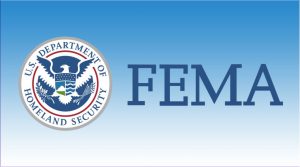 APPLYING FOR PUBLIC ASSISTANCE THROUGH FEMA AND NEMA
APPLYING FOR PUBLIC ASSISTANCE THROUGH FEMA AND NEMA
Cultural institutions and arts organizations in declared counties that were impacted by the March flooding may be eligible for Federal assistance via:
- Federal Emergency Management Agency (FEMA) Public Assistance (PA)
- Small Business Administration (SBA) disaster loans
If your organization or institution is affiliated with a government entity, such as a public university, you should communicate with that government entity regarding your damage and any expenditures (overtime of personnel, purchases, etc.) to protect your facilities. The information below doesn’t necessarily apply to your institution or organization because your expenditures will be included as part of your government entity – but only if that government entity is aware of your damage.
In a Nutshell: File, File, File
- File a claim with your insurance company immediately. Follow all the deadlines set by the insurance company, and submit all documents and information requested within the deadlines set by the insurance company. FEMA will want to see a settlement or denial letter from your insurance company to ensure that benefits are not duplicated, so be sure to file an insurance claim promptly. If you still have unmet needs or damages that the insurance company does not cover, then FEMA may be able to provide you with assistance.
- File for a Small Business Administration disaster loan as well. Complete and submit the application as soon as possible. The deadline to apply for an SBA Business Physical Disaster Loan is Mon., May 20. Submitting the application does not obligate you to accept an SBA loan, but it is a necessary step to being considered for other forms of federal disaster assistance, including FEMA Public Assistance. https://www.sba.gov/funding-programs/disaster-assistance
- File for FEMA Public Assistance. The deadline to apply for Public Assistance is Mon., May 20. After that date, the State and FEMA are not obligated to process your application. Go to Public Assistance page of the Nebraska Emergency Management Agency for information that includes a list of declared counties and the forms that need to be submitted: https://nema.nebraska.gov/recovery/public-assistance.
- For an explanation of the Public Assistance process via a virtual Applicant Briefing webinar, watch the YouTube video on that page.
Questions? Contact NEMA-PA at nema.publicassistance@nebraska.gov.
FREE 2019 Summer of Space Learning Program!
 In the summer of 2019, 16,000 libraries across the country will celebrate space exploration in their summer reading programs. The slogan “A Universe of Stories” was chosen by library professionals to help inspire children of all ages to dream big, believe in themselves, and create their own story. The Collaborative Summer Learning Program and STAR Net are partnering to share STEM resources with these libraries.
In the summer of 2019, 16,000 libraries across the country will celebrate space exploration in their summer reading programs. The slogan “A Universe of Stories” was chosen by library professionals to help inspire children of all ages to dream big, believe in themselves, and create their own story. The Collaborative Summer Learning Program and STAR Net are partnering to share STEM resources with these libraries.
This summer learning program will coincide with NASA’s 60 years of achievement and its celebration of the 50th anniversary of the Apollo 11 Moon Landing.
This is a free program funded primarily by NASA’s Science Mission Directorate. All giveaways, resources, and activities are available at no cost.
In order to participate, your library must be a public library within the United States and register at: https://www.surveymonkey.com/r/universe-of-stories-registration
The 2019 Summer of Space campaign does not require a paid subscription. You will, however, receive one newsletter a month highlighting resources.
You can register multiple libraries and branches in your system separately, providing an email address and point of contact for each.
The benefits of registering are: Access to STAR Net’s webinar series, a chance to win everything from a telescope, tactile books, and Scholastic books to NASA Stickers and calendars. New and exciting activities that connect well with A Universe of Stories and blogs highlighting events and competitions around the U.S.
Be sure to visit http://www.starnetlibraries.org/summer-of-space/ for more information and programming resources.
ALSO, SAVE THE DATE!
On Monday, July 15th, join us for a Live Webcast Event to celebrate the 50th anniversary of the Apollo 11 Mission. This live webcast, brought to you by the American Museum of Natural History, will feature a guided recreation of the Apollo 11 voyage – the space-flight that landed the first two astronauts on the Moon.
Note: More info will be available in future newsletters.
Pretty Sweet Tech: Libraries Ready to Code
 Coding is no secret. In fact, there’s an almost paralyzing amount of information available to people. So much that it can be difficult to decide where to start and where to go next. Knowledge of computers and technology is rapidly becoming vital to life, but many people don’t have a computer science or technology background. And that’s okay.
Coding is no secret. In fact, there’s an almost paralyzing amount of information available to people. So much that it can be difficult to decide where to start and where to go next. Knowledge of computers and technology is rapidly becoming vital to life, but many people don’t have a computer science or technology background. And that’s okay.
In 2017, the American Library Association (ALA) and Google saw this and partnered together to make Libraries Ready to Code. Librarians and educators from 30 different libraries worked on their own project to decide what “coding” means to them and how to best introduce it to their own communities. The result is s set of tools that has been made freely available to us all.
This resource is geared towards all experience levels, so you can filter resources by experience level: “I’m Getting Started”, “I’ve Had Some Practice”, and “I’m Experienced”. Some of these resources are further divided into subject categories like art and fashion, while others are parceled out by recommended age range. Either way, this resource is a great place to connect K-12 students with computational thinking and “coding” skills.
 But keep in mind that this is just a drop in the bucket of what is available. Not everyone learns the same way either. Feel free to look to these learning tools as inspiration to build your own. Think of Libraries Ready to Code as a starting point on the long road towards future-ready technology.
But keep in mind that this is just a drop in the bucket of what is available. Not everyone learns the same way either. Feel free to look to these learning tools as inspiration to build your own. Think of Libraries Ready to Code as a starting point on the long road towards future-ready technology.
Keep an eye out for students who devour every resource on this list, then ask for more. Ask them what they want to learn, then do a little digging to find out which resources you need to make it happen. You might not know every line of code that makes a product work, but you can connect interested students with the information they need to learn.
At one time, information took the form of books and journal articles. Now that information may appear in a Raspberry Pi or YouTube video. It’s time to curate our ever-changing resources. But do yourself a favor and don’t try to learn every bit of technology on the planet. You would be in for a world of hurt.
Start asking students to teach as they learn. There is no telling what people are capable of when given the tools to learn. Take a look at this Virtual Reality headset and software built by a group of high school students in France. Their passion was to make technology accessible to all income levels. They learned more thoroughly with the intent to teach. Virtual Reality, Augmented Reality, machine learning and more are all at our fingertips.
Technology is not slowing down, and neither are libraries. We can work together to curate resources and pave the way towards a better future.
Posted in General, Pretty Sweet Tech, Technology, Uncategorized
Tagged coding, Pretty Sweet Tech, technology
Leave a comment
